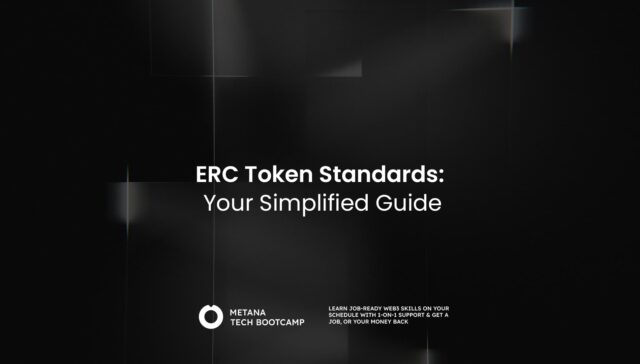In today’s interconnected world, privacy and security are paramount. Traditional Virtual Private Networks (VPNs) have long served as a solution for individuals and businesses seeking to secure their online activities. However, the centralized nature of conventional VPNs has raised concerns about trust, data leaks, and potential misuse of user information. Enter decentralized VPNs (dVPNs) — a revolutionary technology that offers enhanced privacy, security, and resilience by leveraging decentralized architectures. This article dives deep into decentralized VPNs, exploring their mechanics, benefits, challenges, and their role in shaping the future of online privacy.

What is a Decentralized VPN?
A decentralized VPN is a peer-to-peer network that enables secure and private internet connections without relying on a central authority or service provider. Unlike traditional VPNs, which route traffic through centralized servers controlled by a single entity, decentralized VPNs distribute network operations across multiple nodes contributed by users worldwide.
At its core, a dVPN operates on the principles of decentralization, leveraging blockchain technology and peer-to-peer networking. This ensures that no single entity has complete control over user data or network infrastructure, making it inherently more secure and private.
How Decentralized VPNs Work
Decentralized VPNs remove the need for central servers by using blockchain and peer-to-peer networks. Here’s how they function:
- Peer Nodes: Users who join a dVPN network contribute their devices as nodes, allowing others to route their traffic through these nodes.
- Blockchain Technology: The blockchain provides transparency, trust, and accountability within the network by recording transactions and verifying identities without revealing sensitive data.
- Smart Contracts: Smart contracts automate payment processes, allowing users to pay for bandwidth using cryptocurrencies or tokens.
- Encryption Protocols: Data transmitted through a dVPN is encrypted end-to-end, ensuring privacy and preventing interception by malicious actors.
Advantages of Decentralized VPNs
The rise of dVPNs can be attributed to their numerous benefits, including:
- Enhanced Privacy:
- Decentralized VPNs do not store user logs, eliminating the risk of data breaches or misuse. Even on mobile devices, using an iOS VPN helps maintain the same privacy standards, ensuring sensitive data stays protected while browsing on the go.
- Traffic is routed through multiple nodes, masking users’ IP addresses and locations.
- No Central Point of Failure:
- Traditional VPNs are vulnerable to attacks on their centralized servers. dVPNs distribute operations across a network of nodes, making them more resilient.
- Traditional VPNs are vulnerable to attacks on their centralized servers. dVPNs distribute operations across a network of nodes, making them more resilient.
- Censorship Resistance:
- Decentralized networks are harder for governments or organizations to block, enabling users to bypass censorship and access restricted content.
- Decentralized networks are harder for governments or organizations to block, enabling users to bypass censorship and access restricted content.
- Community-Driven Model:
- Users contribute resources to the network, fostering a decentralized and democratized ecosystem.
- Users contribute resources to the network, fostering a decentralized and democratized ecosystem.
- Cost Efficiency:
- dVPNs often have competitive pricing models, with users paying only for the bandwidth they consume.
Challenges and Limitations
Despite their advantages, decentralized VPNs face several challenges. The reliance on peer nodes can lead to inconsistent speeds and latency compared to centralized servers, creating performance issues. As the network grows, maintaining performance and efficiency can be complex, highlighting scalability concerns. Additionally, many users are unfamiliar with blockchain technology and cryptocurrency, which are integral to most dVPN platforms, posing adoption barriers. Lastly, unlike traditional VPNs with dedicated support, dVPNs rely on community contributions, which may affect reliability and overall service quality.
Use Cases for Decentralized VPNs
Decentralized VPNs are versatile and cater to a wide range of applications:
- Individual Privacy Protection:
- Protect personal data from trackers, advertisers, and malicious actors.
- Protect personal data from trackers, advertisers, and malicious actors.
- Corporate Security:
- Secure communication and data exchange for businesses without relying on third-party VPN providers.
- Secure communication and data exchange for businesses without relying on third-party VPN providers.
- Bypassing Censorship:
- Access restricted content in countries with strict internet regulations.
- Access restricted content in countries with strict internet regulations.
- Internet of Things (IoT) Security:
- Safeguard IoT devices from potential threats by encrypting their connections.
Popular Decentralized VPNs in the Market
Several dVPN platforms have emerged as leaders in the space. Notable examples include:

Mysterium Network features a global network of nodes and supports payments in cryptocurrency. This platform leverages a decentralized approach to ensure user privacy and offers robust options for those seeking enhanced anonymity.

Orchid offers a pay-as-you-go model with strong encryption and scalability. Its innovative design allows users to only pay for the bandwidth they use, making it a cost-effective choice for many.

Sentinel combines blockchain technology with a peer-to-peer network for enhanced privacy and security. Known for its versatility, Sentinel provides a reliable option for users seeking advanced decentralized VPN solutions. Each of these platforms brings unique features and use cases, making them ideal for different user needs.
How to Choose the Right Decentralized VPN
When selecting a decentralized VPN, several factors should guide your decision. First, prioritize security features such as strong encryption, no-log policies, and robust privacy measures. These elements ensure your data remains safe and inaccessible to third parties. Cost is another important consideration; evaluate pricing models to find a platform that fits your budget without compromising on quality.
Ease of use is particularly significant for individuals new to decentralized technologies. User-friendly platforms can simplify the onboarding process and enhance overall satisfaction. Lastly, consider the network size. Larger networks generally offer better performance and reliability, ensuring a seamless browsing experience.
The Future of Decentralized VPNs
The future of dVPNs looks promising as privacy concerns and demand for secure online solutions continue to grow. Integration with Web3 will play a crucial role, enabling secure and private access to decentralized applications and ecosystems. As technology advances, scalability and latency issues are expected to improve, making dVPNs more reliable and efficient.
Increased adoption is another significant trend. As awareness of decentralized technologies grows, more individuals and businesses are likely to turn to dVPNs for their privacy and security needs. With these developments, decentralized VPNs are poised to become a cornerstone of the digital privacy landscape.
FAQs
- What is the difference between a traditional VPN and a decentralized VPN?
Traditional VPNs rely on centralized servers controlled by a single provider, while decentralized VPNs operate on peer-to-peer networks without a central authority.
- Are decentralized VPNs secure?
Yes, decentralized VPNs use end-to-end encryption and distribute traffic across multiple nodes, enhancing privacy and security.
- How much do decentralized VPNs typically cost?
Costs vary depending on the platform and usage, but many dVPNs offer competitive pay-as-you-go pricing models.
- Can decentralized VPNs bypass regional restrictions?
Yes, dVPNs are highly effective at bypassing censorship and accessing restricted content.
- What are the risks of using a decentralized VPN?
Potential risks include inconsistent performance and reliance on community-driven networks, which may affect reliability.







